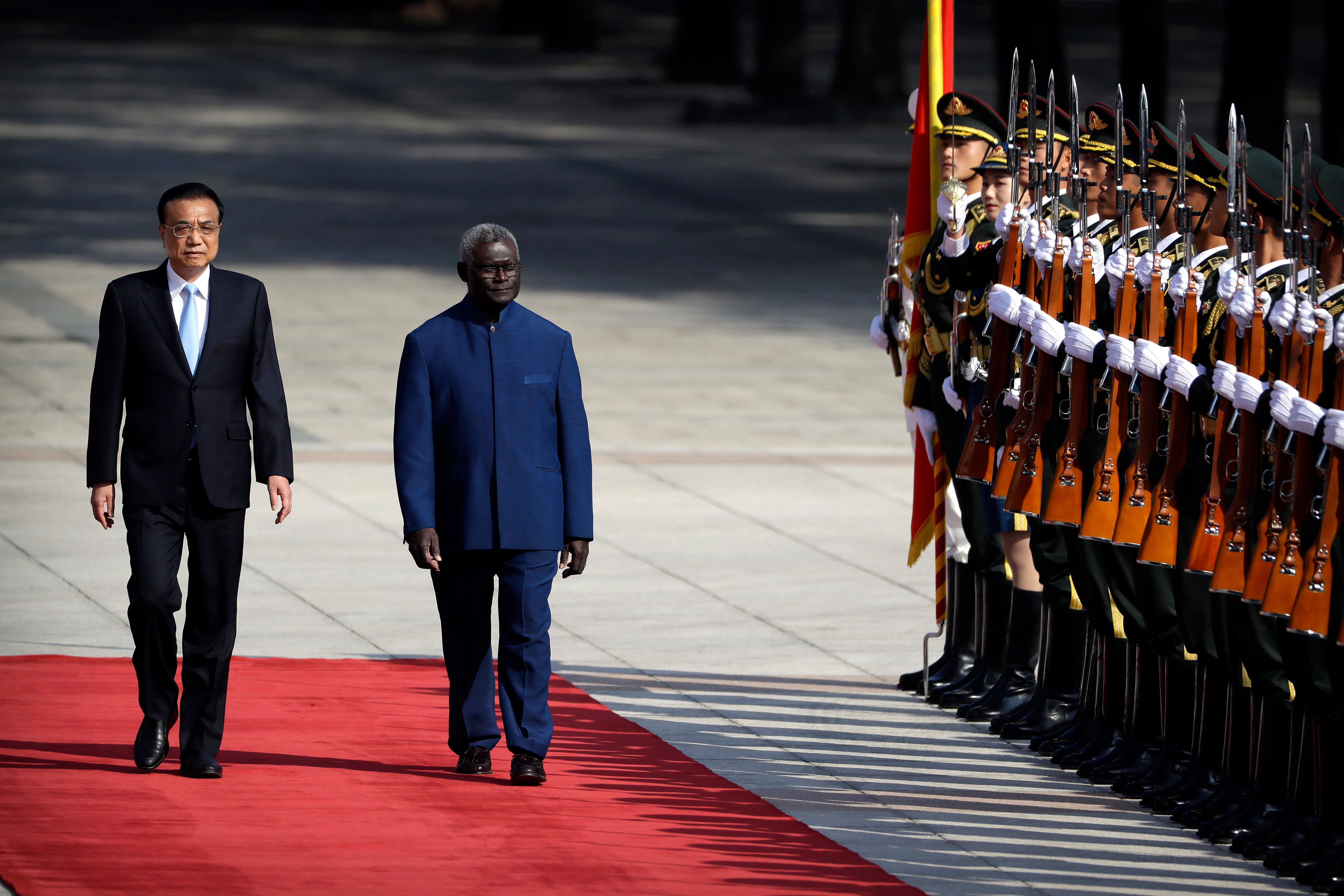Solomon Islands leader defends new security pact with China
The Solomon Islands prime minister has confirmed that his government has signed a new security agreement with China, but told lawmakers it would not undermine the peace and harmony of the region, as has been feared by the opposition and countries including the United States and Australia

Your support helps us to tell the story
From reproductive rights to climate change to Big Tech, The Independent is on the ground when the story is developing. Whether it's investigating the financials of Elon Musk's pro-Trump PAC or producing our latest documentary, 'The A Word', which shines a light on the American women fighting for reproductive rights, we know how important it is to parse out the facts from the messaging.
At such a critical moment in US history, we need reporters on the ground. Your donation allows us to keep sending journalists to speak to both sides of the story.
The Independent is trusted by Americans across the entire political spectrum. And unlike many other quality news outlets, we choose not to lock Americans out of our reporting and analysis with paywalls. We believe quality journalism should be available to everyone, paid for by those who can afford it.
Your support makes all the difference.The Solomon Islands prime minister confirmed Wednesday that his government has signed a new security agreement with China, but told lawmakers it would not “undermine the peace and harmony of our region” as has been feared by the opposition and countries including the United States and Australia.
The security pact allows China to send police and military personnel to the Solomon Islands “to assist in maintaining social order,” while also opening the door for Chinese warships to stop in port there for “logistical replenishment” — giving rise to worries of a possible Chinese naval base on the doorstep of Australia and New Zealand.
But in his address to parliament, Manasseh Sogavare defended the security agreement as being directed entirely to “our internal security situation." He said it it complemented a 2017 security arrangement with Australia, under which Australian police peacekeepers have been in the capital, Honiara, since riots in November.
“I ask all our neighbors, friends and partners to respect the sovereign interest of Solomon Islands on the assurance that the decision will not adversely impact or undermine the peace and harmony of our region,” he told parliament.
A draft of the agreement leaked online last month, and China's Foreign Ministry announced Tuesday that it had been signed “the other day.” Sogavare was equally vague, telling lawmakers that it had been signed “a few days ago.”
Australia had urged the Solomon Islands not to sign the pact, and sent Sen. Zed Seselja, the minister for international development and the Pacific, for talks with Sogavare last week. Two top American officials — Kurt Campbell, the National Security Council Indo-Pacific coordinator, and Daniel Kritenbrink, the assistant secretary of state for East Asian and Pacific affairs — are to visit the country this week for talks.
Sogavare has said his government would not let China build a military base, and China has denied seeking a military foothold in the South Pacific.
After China announced the agreement had been signed, Seselij and Australian Minister for Foreign Affairs Marise Payne said in a joint statement that they were “deeply disappointed.”
“Our consistently stated view, including from the perspective of Australia’s national interests, remains that the Pacific family is best placed to meet the security needs of the region,” they said.
“We are concerned about the lack of transparency with which this agreement has been developed, noting its potential to undermine stability in our region.”
They added that they welcomed statements from Sogavare that the “Solomon Islands will never be used for military bases or other military institutions of foreign powers.”
Earlier this week, U.S. State Department spokesman Ned Price said the agreement could destabilize the Solomon Islands and would set a concerning precedent for the wider Pacific region.
“Despite the Solomon Islands government’s comments, the broad nature of the security agreement leaves open the door for the deployment of P.R.C. (People’s Republic of China) military forces to the Solomon Islands,” Price said.
Micronesia and other Pacific Island nations have also expressed concerns about the deal, as has the Solomon Islands’ main opposition party.
In his address, Sogavare defended the pact, saying it would strengthen the country's police and help them deal with future instability, and that it was “based on mutual respect for sovereignty and in compliance with domestic and international law.”
"Let me assure the people of Solomon Islands that we entered into an arrangement with China with our eyes wide open, guided by our national interests,” he said.